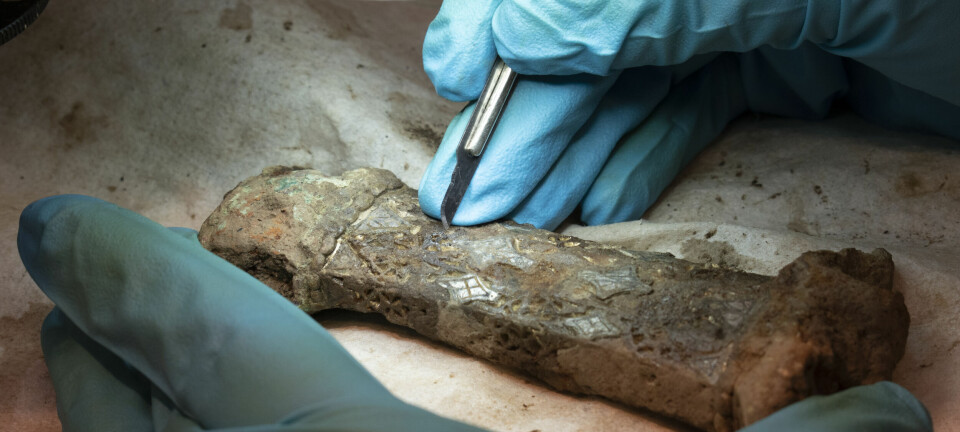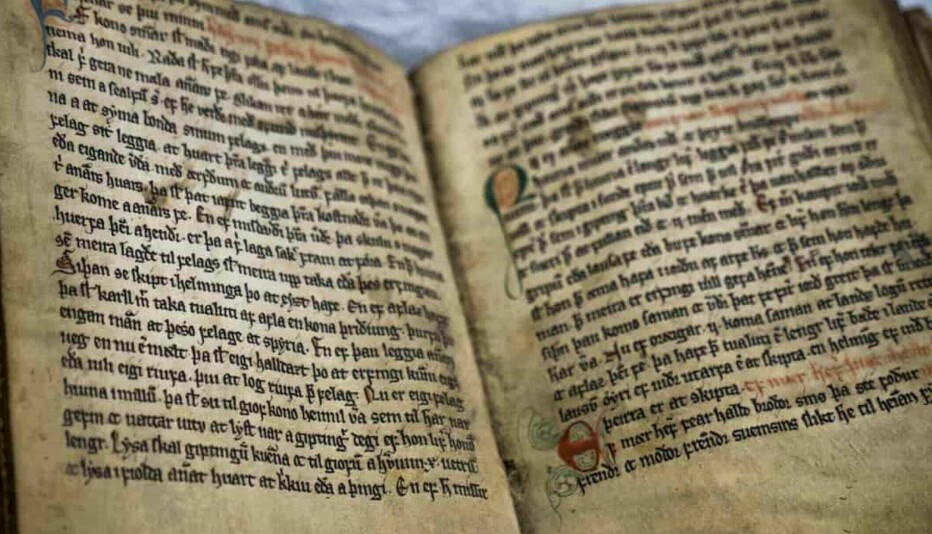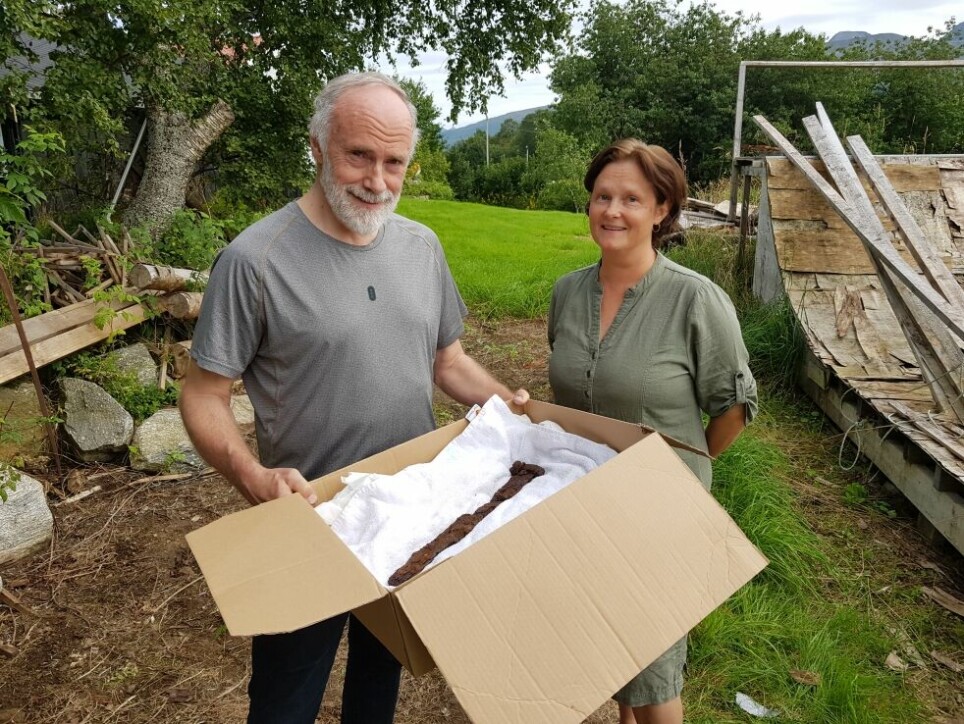
Found a Viking sword in the backyard
It wasn't a couple of pieces of an old rusty plow. It was a Viking sword.
Heidi Vike Grønningsæter's father-in-law had been out digging in the potato field in her garden. Two rusty pieces of something were found in the soil.
“It was my husband who found it. He came into the kitchen and said ‘I think this is a part of an old Viking sword. I didn’t think so, I thought it just looked like an old rusty part of a plow,” Grønningsæter said to the national newspaper VG (link in Norwegian).
Grønningsæter lives in Møre og Romsdal, a county in the northernmost part of Western Norway.
The couple disagreed on what the rusty pieces were and ended up storing them in their garage. And there they remained, for about two years, until it came up in conversation one day.
Grønningsæter and a friend were talking about the Viking Age, when she suddenly remembered the pieces in the garage. To settle the question, she uploaded a photo to the Facebook-page 'Archaeology in Møre and Romsdal'.
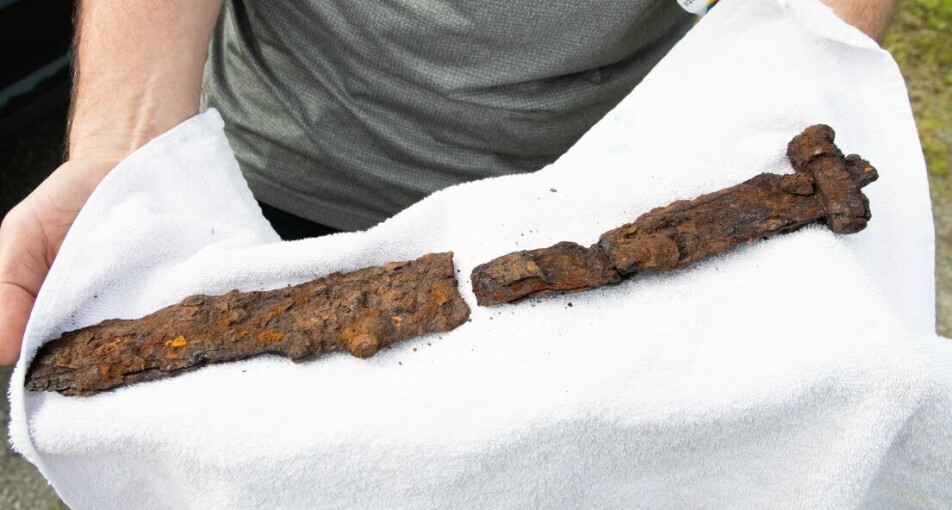
There may be more to come
County conservator Bjørn Ringstad, who runs the page, saw the photo, and immediately knew that Grønningsæter’s husband was right. This was definitely a Viking sword.
“You can see it on the hilt,” Ringstad says to VG.
Ringstad immediately got in touch with Grønningsæter, and the sword has now been sent to NTNU, the Norwegian University of Science and Technology, for conservation and further examination.
And perhaps there is more to come, as where there is a Viking sword, there may be a Viking grave.
“We believe that when there is a sword, then there is a grave nearby. It’s highly likely that we may find more items,” Ringstad says.
Heidi Grønningsæter finds it all very exciting – including the prospect of an archaeological excavation in her garden.
“I’m really excited about what’s next, if they find anything else. I can hardly believe it myself,” she says to VG.
“This is all very special, fun, and exciting. I’m completely overwhelmed.”
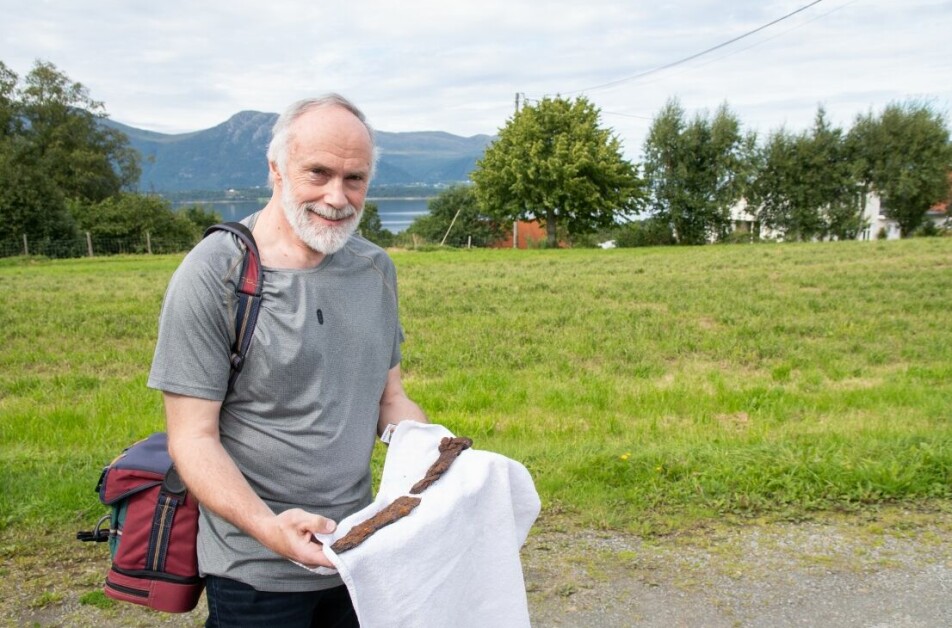
Another sword for the Norwegian collection
“The sword looks like it’s from the early Viking Age, based on the shape of the part of the hilt that is still there”, Vegard Vike writes in an email to sciencenorway.no.
Vike is Head Engineer of Archaeological Conservation at the Museum of cultural history in Oslo.
An expert on Viking Age weapons, Vike chances a dating of the object. Based on the remains of the hilt, he believes the sword may date back to ca 775-925.
The missing pieces of the sword may still be in the garden, Vike believes.
A typology of Viking swords by Jan Petersen, published in 1919, is still considered the go-to place for knowledge about these weapons.
“To date, around 3000 Viking swords have been found in Norway – this is a doubling of Viking swords since Petersens dissertation was published,” Vike writes.
“So around 10-15 such swords found each year,” he writes.
No other country can boast of as many preserved Viking swords as Norway.
Most of them are from Viking graves, also the ones that are discovered by chance, like the recent garden-find.
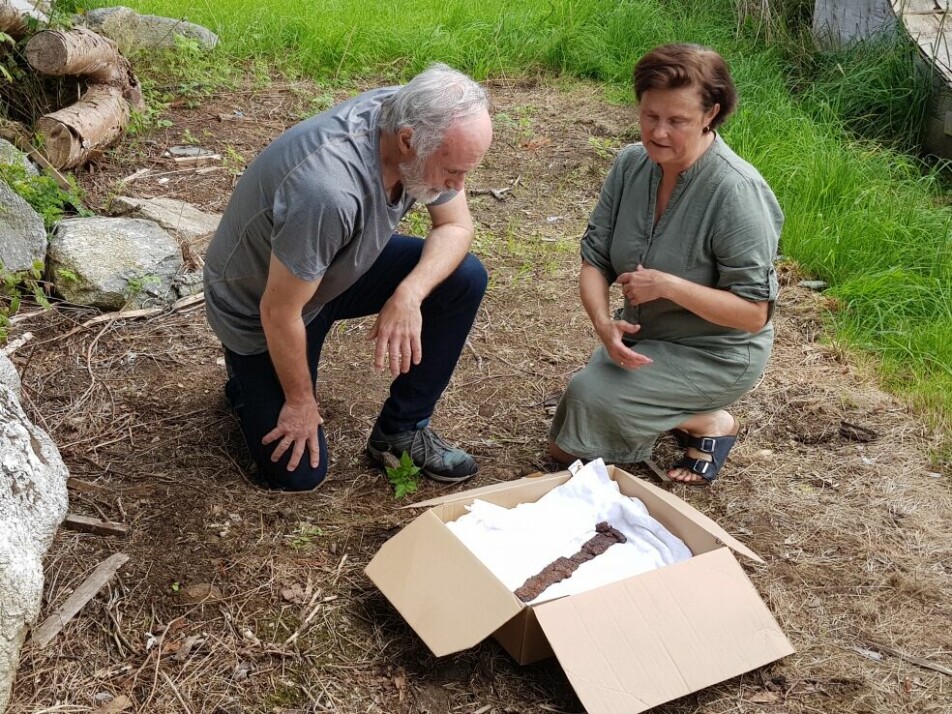
Viking graves in potato fields
Kjetil Loftsgarden, Associate Professor of Archaeology at the University of Oslo, confirms that the sword most likely comes from a grave.
“You don’t just lose a sword”, he writes in an email to sciencenorway.no.
Loftsgarden is also the editor of the scientific journal Viking.
In a grave with a sword, other weapons and tools such as a knife, spear, axe and shield might also be found.
There was great variation in burial traditions during the Viking Age, according to Loftsgarden. Some were buried in mounds, others in flat graves.
“These are traces of complex rituals, and it is difficult to find the reason for why some dead were cremated and others not. We find these variations within the same region, and even within the same burial field” he writes.
“Many of the remains of these graves have been damaged or destroyed by agricultural activities and modern construction during the past 200 years. And this is most likely what happened at some time in the potato field in Grønningsæter’s garden,” he writes.
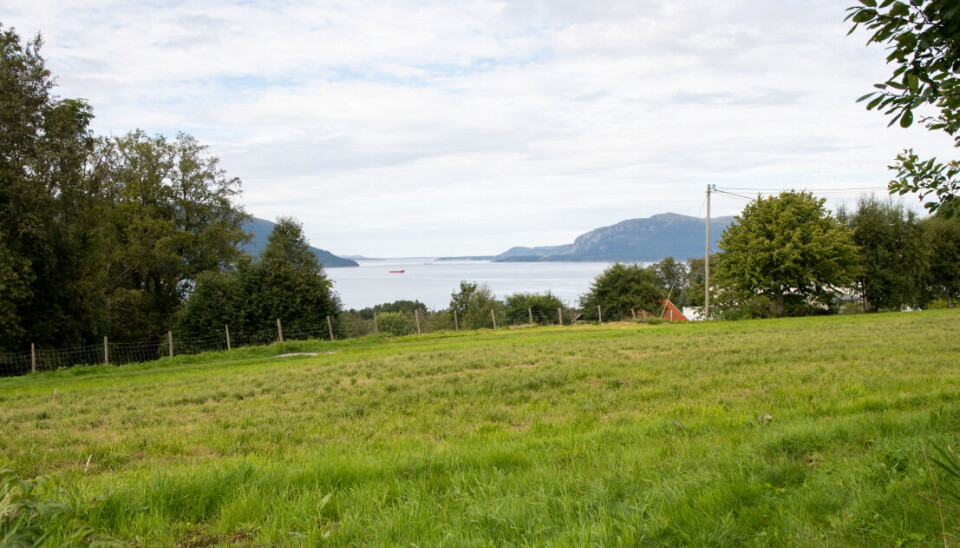
Remains of the wealthy
So who could the sword have belonged to?
Although we have found many swords and traces of swords in Norway, there is reason to assume that only the higher echelons of each region owned a sword, according to Loftsgarden.
The fancier the sword, the higher up in society the owner would be.
Loftsgarden also reminds us that only a minor part of the population were buried with artefacts such as weapons, tools or jewellery.
“Most people who lived during the Viking Age left no traces. As is so often the case, the poor of society are missing in our sources,” he comments.
------








